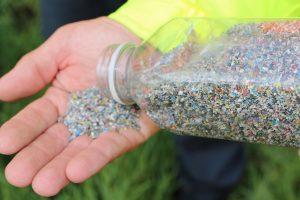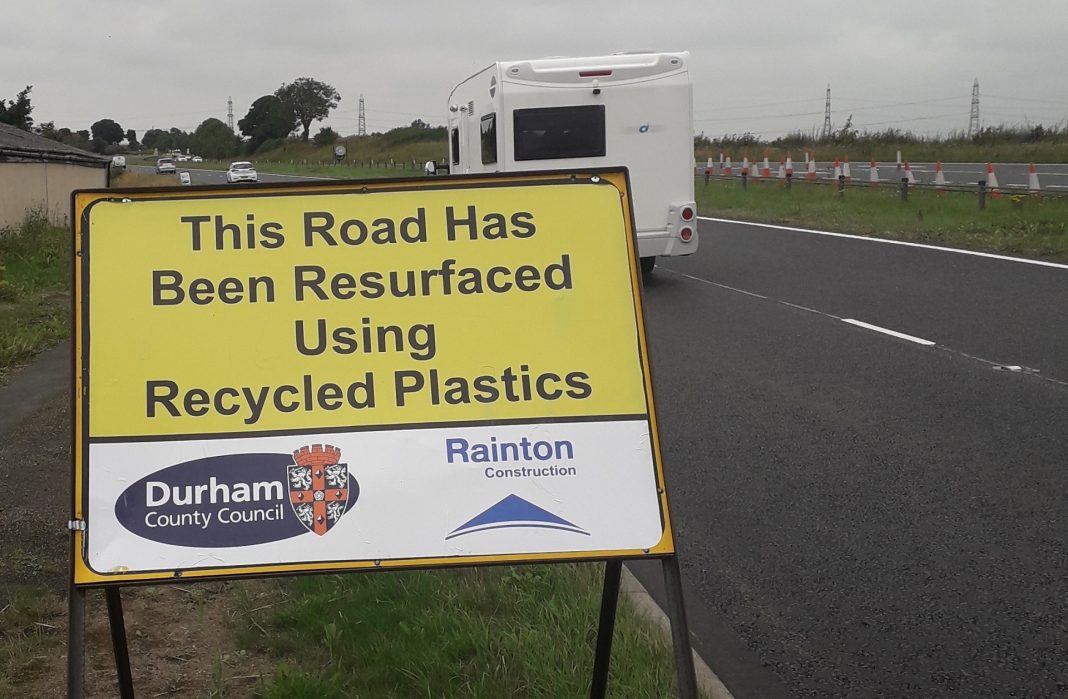If you drive down the A689 near Sedgefield, County Durham, you could find yourself motoring along a ‘plastic’ road.
During recent roadworks, a section of the A689 – between Butterwick Junction and the county border – was resurfaced with a new type of hot rolled asphalt containing bits of waste plastic.
The cutting-edge coating is being trialled for the first time in the north east by Durham County Council. The coating is seen as environmentally friendly as it stops hard-to-recycle pieces of plastic from being thrown away and polluting the environment.
The plastic saved in the trial is equivalent to 60,000 plastic shopping bags.


Durham County Council’s head of technical services, John Reed, said, “We have a continuous programme of resurfacing to maintain the condition of our road network.”
“We’re always interested in any innovative technology that improves our roads and makes them more environmentally friendly.”
“In this trial, we incorporated waste plastics into the asphalt instead of traditional bitumen.”
“This will help divert plastics that are difficult to recycle from incineration and landfill and reduce our carbon emissions.”
“We are confident that this new technology will perform at least as well as the conventional method.”
The bits of plastic are provided by a Scottish company, MacRebur Limited. MacRebur has developed a process which turns waste plastic and insulation that wouldn’t normally be recycled into plastic crumbs that can be mixed into asphalt.
Most road surfaces in County Durham are currently made up of small pieces of stone held together by a bitumen binder.
Using the plastic means that less bitumen is needed. This has a positive environmental effect as for every tonne of bitumen used in road resurfacing, a tonne of carbon dioxide is released into the atmosphere.
MacRebur also believes that road surfaces made from the new coating are more durable and longer-lasting.
MacRebur’s business development manager, David Wykes, said, “We have supplied our products to a number of local authorities in the UK and internationally, but this resurfacing scheme in County Durham is the largest we have been involved with in England.”
“The key thing about the polymers we use is that they are difficult to recycle back into their original forms due to contamination with other plastics.”
“However, our products are able to use mixtures of these polymers, helping to reduce carbon dioxide emissions, reduce the demands on fossil fuel bitumens and the amount of plastic that would usually be disposed of.”


























Yes, yes, can we have more of this!
Excellent!
They’ve just resurfaced one of our local roads with Recycled plastics here in Sydney Australia … ????????????